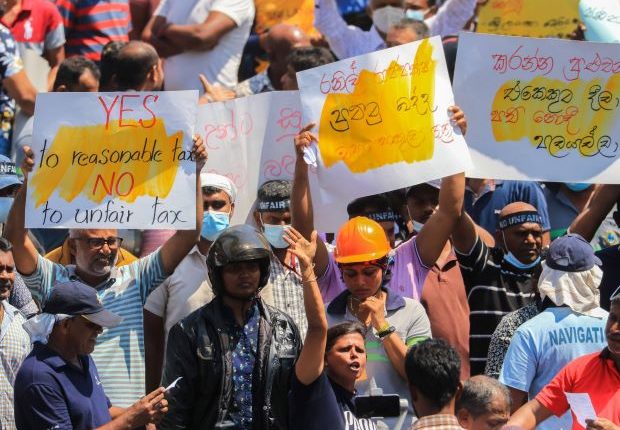Sri Lanka’s total tax default, penalty stood around Rs 620bln by 2021 says IRD
By Shihar Aneez
COLOMBO – Sri Lanka’s total tax default and penalty for default have skyrocketed to 619.7 billion rupees at the end of 2021, data from the state-run Inland Revenue Department (IRD) showed, amid more tax evasions and avoidance despite two tax amnesties in the same period.
The tax default, which stood at 22.5 billion rupees by end 2000, has jumped to 368.4 billion rupees by end 2021, an IRD response to Right to Information (RTI) request showed.
The penalty imposed on taxpayers for defaulting their payments stood at 251.4 billion rupees by end 2021.
“Two tax amnesties have been given by the government during the last 22 years,” the IRD said in the response.
Though the total defaulted tax was 368.3 billion rupees, the IRD data showed only 84.5 billion rupees had been categorized as “collectable tax” as 283.7 billion rupee worth tax receivables have been disputed by the taxpayers.
Similarly, only 75 billion rupees worth of penalty was categorized as “collectable” out of the total 251.5 billion rupees due to the taxpayers having disputed or challenged in court for dues equal to 176.4 billion rupees, the IRD data showed.
The IRD did not elaborate on the number of tax payers in its response.
The penalty is not based on the earnings of taxpayers. Instead, it is a punishment fee for the delay in tax payments or not declaring the accurate income.
Since the unprecedented economic crisis forced Sri Lanka to declare sovereign debt default in April last year, the island nation government has raised personal and corporate taxes multiple folds to meet high government expenditure.
Most state-sector trade unions have started street protests demanding to revise down taxes – which are as high as 36%. The taxes have reduced people’s disposable income and their purchasing power drastically.
The International Monetary Fund (IMF) has demanded to reduce the island nation’s budget deficit by reducing government expenditure and raising tax revenues.
Sri Lanka’s tax revenue is one of the lowest in the world and analysts say many businessmen who are close to political powers influence the tax authorities through elected leaders to write off or reduce their tax.
Analysts have urged the government to go for automated tax payments to avoid leakages and any possible corruption during tax payments.
-economynext.com



Comments are closed, but trackbacks and pingbacks are open.